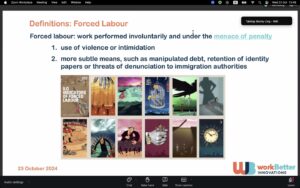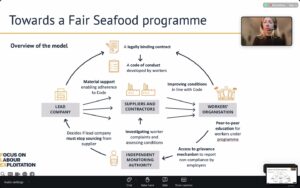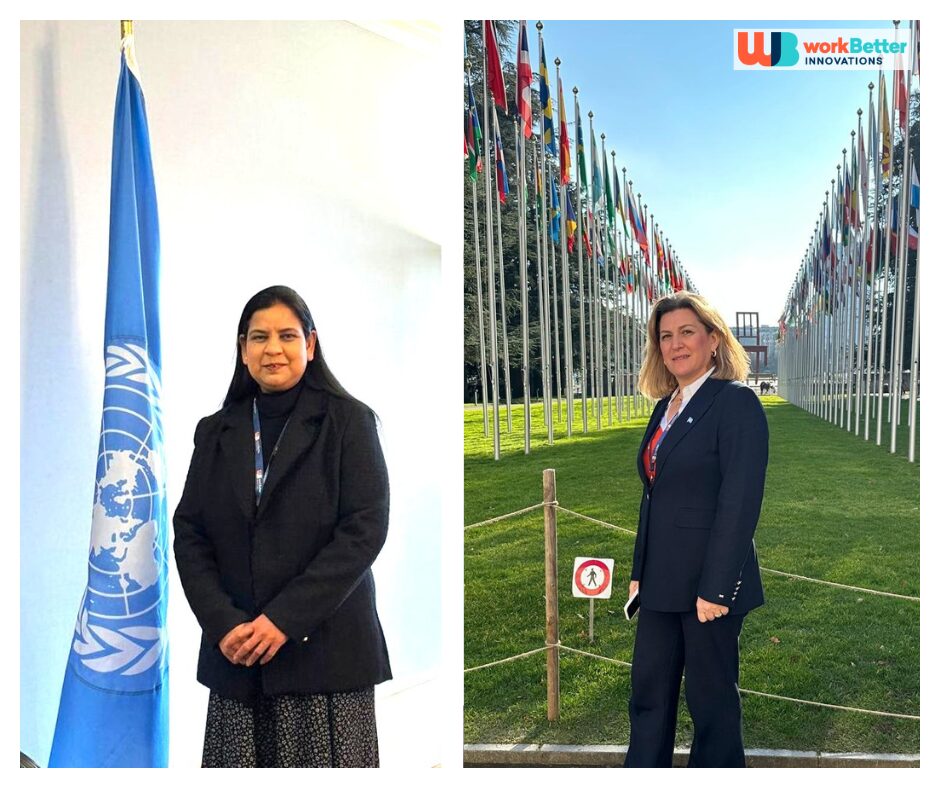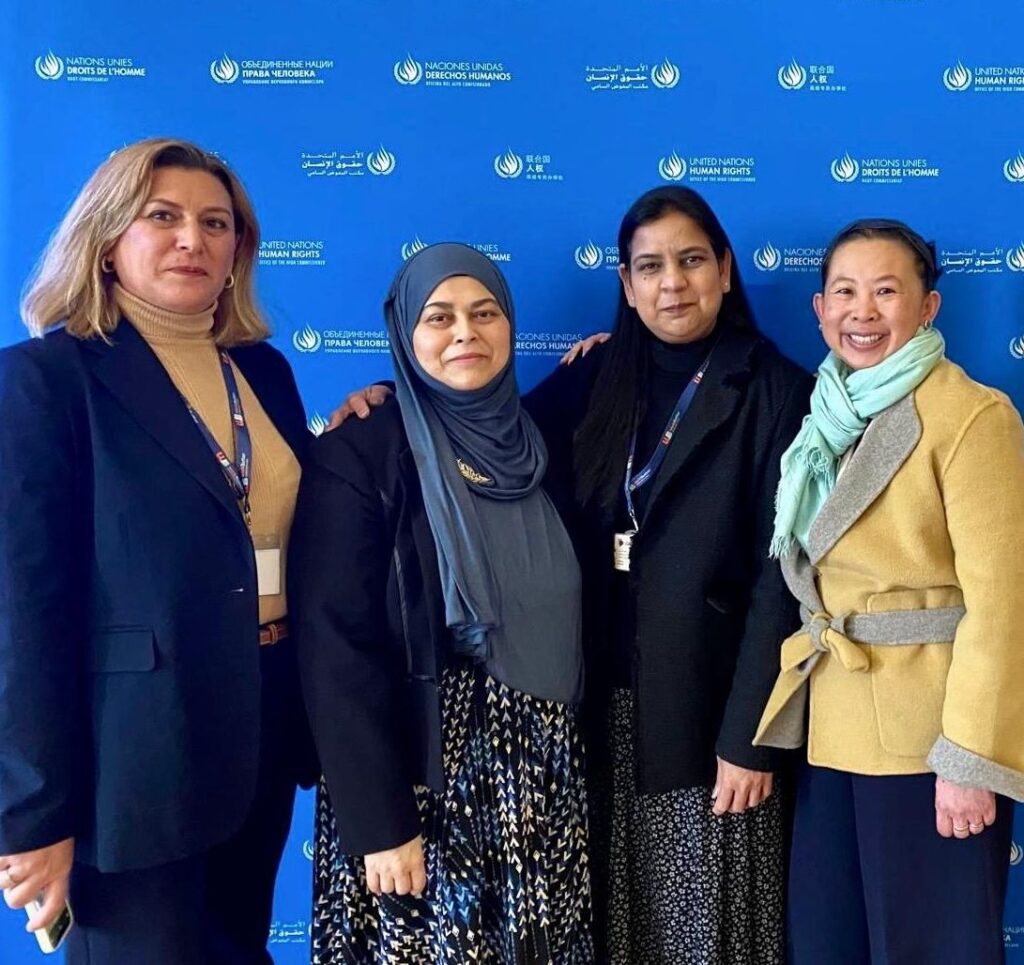24 October 2024. WBI Executive Director Dr Bonny Ling spoke on growing concern of labour exploitation at sea at the Blue Horizon Seminar Series, organised by the UNESCO Chair in Ocean Governance at the Centre for Blue Governance of the University of Portsmouth.
Also speaking at the panel was Prof. Leïla Choukroune, Professor of International Law and Director of the Centre for Global Justice and Rights at the University of Portsmouth, Nora Boeggemann, Outreach and Engagement Manager at Focus on Labour Exploitation (FLEX) and Chris Williams from the International Transport Workers’ Federation (ITF). The seminar aims to foster dialogue on improving international cooperation, legal frameworks, and preventative measures to address the challenges of labour exploitations at sea.
The talk opened with Bonny addressing a seemingly simple but in reality complicated question: What is forced labour? The International Labour Organization (ILO) published a guide in 2012 on the 11 forced labour indicators, to better explain the various scenarios that can be linked to the risks of forced labour. These can include the subtle coercion and the isolation that is not necessarily due to physical remoteness.

Photo caption: The slide on the definition of forced labour and ILO’s 11 forced labour indicators from Bonny’s presentation.
Nora Boeggemann from FLEX introduced their pilot project in collaboration with the ITF in closing systematic loopholes which heightens the risks of the exploitation of migrant fishers in the UK. It is important to remember that a fair and sustainable fishing industry relies on more than vessel owners. None of monitoring authority, buyers and customers, fishing companies and workers can be absent from this roadmap of making the seafood supply chain more responsible.

Photo caption: The slide on the roadmap of a fair and sustainable fishing industry from Nora’s presentation.
ITF’s Chris Williams shed light on the uniqueness of job precarity in the fishing ecosystem and how it deepens the abuses against fishers. He pointed out how the current UK transit visa system has been exploited to evade the legal protection provided to migrant fishers, as well as other examples internationally.
Along with Leïla, Bonny raised that it is important to recognise the complexity of forced labour, instead of only seeing forced labour as enabled by physical penalty, such as chains, fences and bruises to indicate physical violence. Work can be performed involuntarily under the use of violence or intimidation, as well as the more subtle means of debt, retention of identity papers or threats of denunciation to immigration authorities.
The webinar generated a lively discussion with the audience. One audience member noted that labour exploitation at sea is a sobering thought when especially considering that about 90% of goods, both raw material and finished products, are transported by ships and given contemporary slavery at sea can be a prevalent risk, almost everything we come across is probably touched by an element of exploitation in its life cycle.
Read the FLEX report on closing the loophole allowing the exploitation of migrant fishing workers in the UK. The webinar will also be later released on YouTube. We will send out the link later once it has been uploaded!






